 [The following article appeared in this weeks 5 Towns Jewish Times]
[The following article appeared in this weeks 5 Towns Jewish Times]
I am embarrassed to even attempt to write an article about my rebbi, HaRav Alter Henoch Leibowitz, zt’l, the longtime rosh yeshiva of Yeshivas Chofetz Chaim in Queens. Anything I write will be woefully insufficient. Yet, on the other hand, how can I not write anything? The rosh yeshiva’s chiddushim in mussar and Gemara have been published by his talmidim. To gain a true perspective of who the rosh yeshiva was, the reader should turn there. Here I will attempt to present a few ideas. There really is so much more to write; I just wrote a few thoughts to whet your appetite.
There was a barber shop near the yeshiva. A talmid from the yeshiva was getting a haircut when the rosh yeshiva walked in. Ralph, the barber, turned to the talmid and asked, “Is that your father?” “No,” the bachur replied. Upon hearing this, the rosh yeshiva countered “But he is my son!” The rosh yeshiva did not have any biological offspring, but the talmidim were his children.
Rabbi Avrohom Semmel, the rosh kollel at Yeshivas Chofetz Chaim, mentioned the following story during his hesped of Rav Leibowitz: A few years ago, the rosh yeshiva was discussing with the hanhalah of the yeshiva his upcoming (second) wedding. Someone mentioned that the custom is for a second wedding to be small. The rosh yeshiva agreed. He said, “I’m willing to have a small wedding. I’m only going to invite close family.” That’s exactly what he did—he only invited hundreds of his talmidim.
Many talmidim would bring their children to the rosh yeshiva. He had so much nachas from them. When he saw our children, he always referred to them as future marbitzei Torah. Rabbi Bentzion Chait pointed out that the rosh yeshiva was a visionary and he dreamed that thousands of our children and talmidim would spread Torah throughout America. On one occasion, I visited the rosh yeshiva at his bungalow in Camp Mogen Avrohom (in Swan Lake, N.Y.). The rosh yeshiva held one of my twin girls, and I snapped a picture. I put her back in the stroller and was ready to go, when the rosh yeshiva stopped me and said, “What about her twin sister? When she gets older, she’s going to want to know where her picture is!”
That was a lesson the rosh yeshiva stressed constantly—to always focus on what another person may feel. On numerous occasions the rosh yeshiva said that American bachurim are fragile as tissue paper. He meant that many American bachurim are lacking self-confidence and self-esteem and can be hurt very easily. In Europe this phenomenon wasn’t as common. The example he gave is that a bachur can become very distressed that his rebbi didn’t smile at him that day. Therefore, the rosh yeshiva was always extra careful not to even inadvertently give a bachur an impression that he wasn’t happy with him.
One time when the rosh yeshiva wasn’t feeling well, he davened Maariv in his house on motzaei Shabbos. That motzaei Shabbos was the appropriate time to recite Kiddush Levanah. So, after Maariv, the rosh yeshiva went outside to say Kiddush Levanah. There were five bachurim present. Two bachurim were standing right next to him. Two other bachurim and I were standing a short distance away. The custom during Kiddush Levanah is to say “shalom aleichem” three times, each time to a different person. In our group of three bachurim, we were talking among ourselves. We were wondering which one of us the rosh yeshiva was going to say “shalom alei-chem” to. Sure enough, he turned to the bachur on his right and said “shalom aleichem.” He turned to the bachur on his left and said “shalom aleichem.” Then he looked at our group of three, immediately sized up the situation, and made a big display of waving his hand in the air to all of us and said loudly “shalom aleichem!” We hadn’t thought of that possibility of saying one big shalom aleichem to us all, but the rosh yeshiva did, and he avoided any hurt feelings.
Still, in the back of my mind I wondered, What if it hadn’t worked out so perfectly, with two people next to him and one group away from him? What if the situation didn’t lend itself to such an easy solution? What would the rosh yeshiva do? Well, I had my chance to find out. On another occasion, the rosh yeshiva was reciting Kiddush Levanah with six bachurim around him. After saying “shalom aleichem” to three different individuals, he just continued saying “shalom aleichem” three more times. The custom is to say “shalom aleichem” a minimum of three times, but there’s nothing wrong with adding a few more for good measure. Why risk having someone be insulted that his rosh yeshiva didn’t say “shalom aleichem” to him?
The rosh yeshiva did not directly rebuke his talmidim, as the Alter of Slobodka did. The rosh yeshiva said that if he were to directly point out to an American bachur his faults, the talmid might never recover. Instead, the rosh yeshiva would say a shmuess to the entire yeshiva, and hope that the bachur for whom it was intended would get the lesson.
One time the rosh yeshiva gave a shmuess to the entire yeshiva. He was concerned that there was a laxity in the yeshiva in a certain aspect, but he didn’t tell us what it was! No one could figure it out. The bachurim pleaded with those very close to the rosh yeshiva to ask him what he was referring to. The rosh yeshiva wouldn’t budge. A week later, the rosh yeshiva said, “You didn’t figure it out yet?” and finally let us in on the secret.
On another occasion, a bachur was wearing an inappropriate yarmulke. However, the rosh yeshiva didn’t want to give mussar to the talmid. Instead, he reached under his own hat, took off his yarmulke, and handed it to the bachur, saying, “Please take this—I want you to have it.” The bachur wore it proudly!
Out of concern for the sensitivity of a fellow bachur, the following question was asked of the rosh yeshiva: If one is in the middle of learning Torah and someone else comes to speak to him, can he cut the conversation short and say, “Not now, I’m learning”? There are sefarim that say that you should. However, the rosh yeshiva said that you have to be concerned that perhaps the person talking to you is somewhat depressed and really needs the conversation. Unfortunately, the emotional weakness of American youngsters makes this situation more prevalent than it was in Europe. The halachah is that a chesed that cannot be performed by someone else supersedes learning. This conversation might be a great act of chesed. One shouldn’t be so quick to shoo the person away. Of course, every situation must be judged independently.
Whenever the rosh yeshiva was free, talmidim would congregate around him to ask him questions on the shiur, shmuess, or current events. He was never able to walk alone to his office, to a car, or to shul (unless he wasn’t feeling well). I remember one time the rosh yeshiva kindly requested in a shmuess that the talmidim not talk to him during davening, as it disturbs his concentration. Davening in yeshiva started from Mizmor Shir. It is forbidden to talk from Baruch She’amar all the way through chazaras ha’shatz. There was only one free moment to talk to the rosh yeshiva during Shacharis, and that was during the MiShebeirach for cholim on Monday and Thursday. And the talmidim even utilized that time! When the rosh yeshiva said that the discussions disturbed his concentration, he must have been referring to his concentration during Ashrei and U’Va LeTzion after leining.
If a talmid had a personal matter to discuss with the rosh yeshiva, he would ask the rosh yeshiva’s secretary for an appointment. During my years in yeshiva, a private appointment with the rosh yeshiva was much sought after. However, if a talmid had an urgent need, the rosh yeshiva always made time for him. There was a talmid who asked the rosh yeshiva’s secretary for an appointment. He said that the matter wasn’t urgent and could wait until the rosh yeshiva had free time. He obviously didn’t realize how busy the rosh yeshiva was. That secretary retired two years later, and the talmid still didn’t have his appointment!
There was once a bachur from an out-of-town yeshiva who decided to drop out of high school. His rebbi was very concerned about the future of this student. He arranged an appointment for him with the rosh yeshiva. When the talmid arrived at the rosh yeshiva’s house, the rosh yeshiva showed him into his study. The rosh yeshiva spoke at length to this talmid. What did he say? The talmid doesn’t know. He was so in awe of the rosh yeshiva that he just remained mesmerized, not listening to a word. The rosh yeshiva finished speaking to him and walked him outside. He gave him directions to the yeshiva. The rosh yeshiva gave him a warm hug and said, “If you stay here, I’ll take care of you.” The genuine affection and concern of the rosh yeshiva demonstrated in that hug had the effect that his words did not, and caused the bachur to rethink his decision. He became and remained a close talmid.
The rosh yeshiva had a unique way of showing affection for his talmidim. HaRav Dovid Harris, shlita, related in his hesped of Rav Leibowitz that he once noticed that the rosh yeshiva walked into the beis midrash, looked at a certain talmid, and twirled his finger. Curious, Rabbi Harris asked the talmid what was meant by that gesture. The talmid replied that the rosh yeshiva was reminding him of an incident that happened 15 years before. The rosh yeshiva could have simply said or mouthed hello, but this was a much more meaningful and personal gesture.
Another talmid told me that the rosh yeshiva would always say “duet” when he saw him. Why? One yom tov, this talmid and the rosh yeshiva were the only kohanim on the duchan. They chanted the melody together for Birkas Kohanim. Afterward, the rosh yeshiva approached the bachur and said, “Nu, we sounded pretty good together!”
I have to admit that the phrase the rosh yeshiva had for me is somewhat less flattering. When the rosh yeshiva used to see me anytime after Chanukah (I think), he would ask me, “Are you ready for the party?” Why? My family (and the Vinitskys) used to spearhead a small simchas yom tov on the last day of Pesach (when the yeshiva was deserted). Since I used to take charge and arrange the rosh yeshiva’s attendance, my catchphrase became “Are you ready for the party?”
I must say, though, that there is a talmid who became a rosh yeshiva who had a much more interesting catchphrase. This individual once related to me that the rosh yeshiva used to always say to him, “Keep an eye on the referee.” (That particular phrase must represent something very interesting.)
The rosh yeshiva, in following the derech of Slabodka, would always stress the fact that we all have to realize that everyone has a tzelem Elokim. Besides empowering ourselves, it helps us realize the seriousness of violating someone else’s sensitivities. One particular shmuess stands out. After Adam HaRishon sinned, Hashem called out to him, “Ayeka,” “Where are you?” The Midrash says that from here we learn the obligation to knock before entering a room. Hashem didn’t suddenly ask Adam why he sinned, but first said, “Where are you?” The rosh yeshiva said we can see a deeper message here.
Imagine the following: You have lent your beautiful house to someone. You warned him to be very careful with all the precious items in the house. Upon your return, you hear loud music blaring from inside. You see loads of cars parked by your house and garbage strewn all over. You want to barge into the house catching the derelict borrower red-handed. However, that’s not proper. Even in this situation, you should knock first. That’s what human dignity demands. Hashem took Adam HaRishon around Gan Eden and told him, “See all the beautiful things I created just for you; take special care that you don’t destroy my world.” Adam only had to keep one directive. Yet he violated it, thereby bringing the punishment of eventual death to the world. Further, he himself deserved an immediate death sentence, but it was rescinded due to Divine mercy. Even though he sinned grievously, Hashem still accorded him the courtesy of “Where are you?” The Torah is teaching us that the simple courtesy should be extended no matter what violations a person may have made.
Interestingly enough, my friend told me an incident that occurred with him that portrays an application of the aforementioned shmuess. One summer, the bachurim went up with the rosh yeshiva to a summer camp. It was very important for the rosh yeshiva to have a phone line. Besides the rosh yeshiva’s personal needs, it was necessary for the all the members of K’lal Yisrael who sought his da’as Torah and counsel. One bachur took it upon himself to arrange this phone line. The camp was somewhat remote. It took considerable time and effort to arrange for a new phone line to be installed and activated before the rosh yeshiva’s arrival. Baruch Hashem, the bachur succeeded. Yet, during the first few days of camp, the rosh yeshiva experienced constant phone outages.
The bachur realized that someone was tampering with the phone lines at the network interface box and surreptitiously connecting his own phone. The bachur repaired the problem, only to have it happen again. He decided to conduct a “stakeout” to see who the culprit was. His patience was rewarded when the culprit came to change the wires. He ran at full speed to catch the culprit in the act. But on the way, he passed by the rosh yeshiva’s door. Apparently, the rosh yeshiva and his rebbetzin had gotten wind of what was happening. They called the bachur who was in hot pursuit to come inside. They made him sit until he calmed down. The rosh yeshiva and rebbetzin then told him, “This isn’t the proper thing to do. Now that you know who the responsible individual is, approach him like a mentch!”
The rosh yeshiva was exceedingly humble.
He sometimes vacationed in New Hampshire. A chassid who was also vacationing there asked the rosh yeshiva, “Where do you daven during the year?”
He replied, “At a yeshiva in Queens.” (The rosh yeshiva usually wore a suit during the week, not a kapputah. Most rashei yeshiva wear a kapputah, hence the chassid’s mistake.)
There was a talmid who shared the same last name as the rosh yeshiva. This talmid was walking down the hallway when his friend called out “Leibowitz!” The rosh yeshiva, who was also in the hallway, turned around!
The rosh yeshiva was once discussing a certain point with two gedolim. He offered his opinion, but one of the gedolim still disagreed. He later found his position in the Ketzos. I would have been on the phone right away! Yet since it was not a halachic matter, the rosh yeshiva just let it slide. Rabbi Bentzion Chait related that he once tried to tell the rosh yeshiva that HaRav Shmuel Birenbaum, zt’l, said that Rabbi Leibowitz is a gadol ha’dor. The rosh yeshiva kept asking Rabbi Chait to repeat what he said because he couldn’t understand what Rabbi Chait was saying. The rosh yeshiva couldn’t fathom that such praise was being said about him, and so it didn’t register. After several repetitions, the rosh yeshiva finally “heard” what Rabbi Chait was saying. He said “Bentzion, you’re embarrassing me” (the implication being that it couldn’t possibly be true). Finally, the rosh yeshiva said, “I know—I helped him out on the sugya of Chardal, that’s why he said that.”
I would like to add one non-Litvishe story. The rosh yeshiva had a neighbor who was very spiteful. One year, he made a big deal about some leaves from the rosh yeshiva’s s’chach that fell off the sukkah and into his backyard. The neighbor raised his voice in anger to the rosh yeshiva and declared, “This is the last year that your leaves will fall in my backyard!” And that’s exactly what happened. The neighbor didn’t make it until the next Sukkos.
HaRav Dovid Weiner made the point in his hesped of the rosh yeshiva that everything that Rav Pam, zt’l, wrote in an article about his rebbi, Rav Dovid Leibowitz, zt’l, is true also of Rav Dovid’s son, the rosh yeshiva. So I will end off with Rav Pam’s words (published in 1941):
The rosh yeshiva, nishmaso Eden, lives on in the hearts of his ever grateful talmidim. The rosh yeshiva is immortalized by the great Torah center, Yeshivas Rabbeinu Yisroel Meir HaKohen.


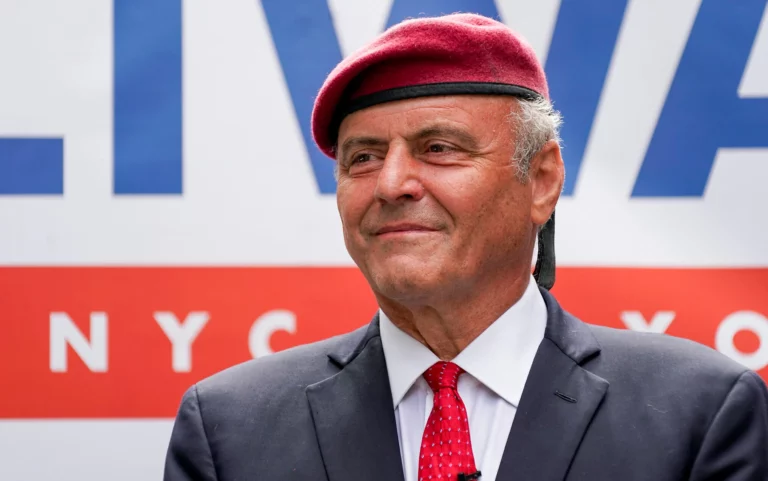
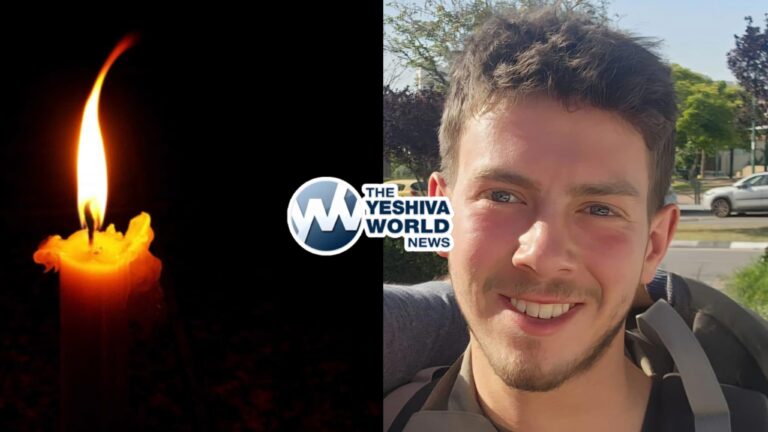

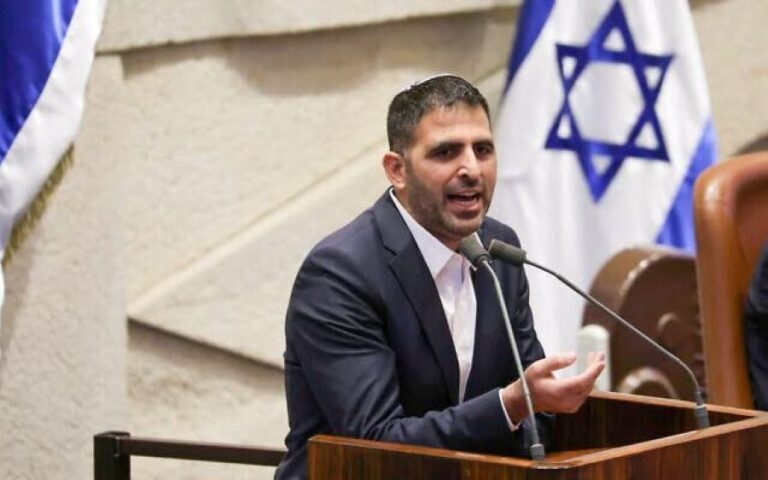
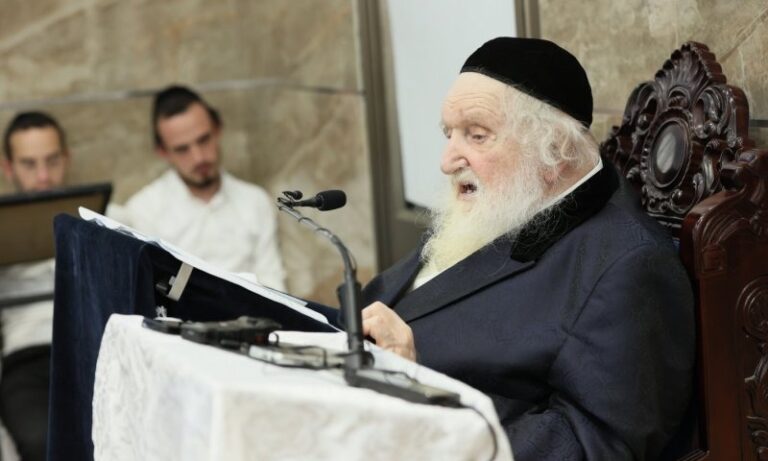
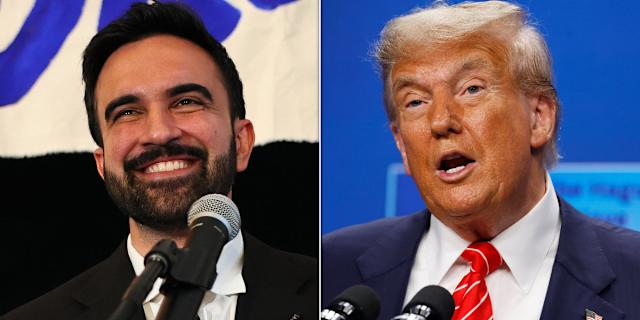


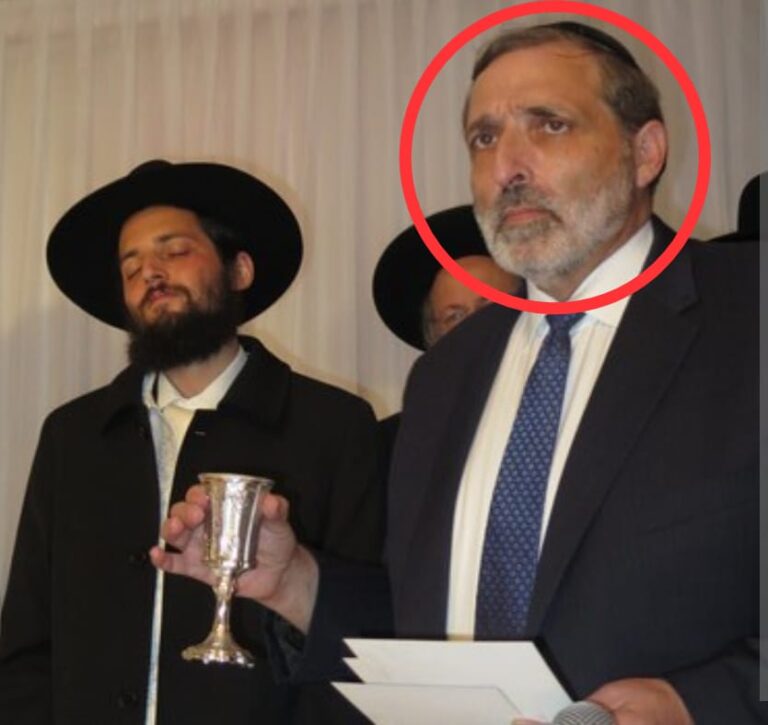
One Response
It is nice to hear beautiful stories about the Rosh Hayeshiva Zt”l. But let’s not forget that these stories are not what made him a Gadol. They are the byproducts OF his gadlus!
While many of the maspidim at his levayah spoke about his many kochos and accomplishments, I think one of the most moving moments (although there were many) was when hundreds upon hundreds of Talmidim of varying ages: from young kollel yungeleit to great-grandfathers all tore Kriyah for their beloved Rebbe Muvhak! In today’s day how many people can really say they have a Rebbe Muvhak?! Yet hear there were HUNDREDS of people who really felt like they lost their father! He changed the lives of so many, so profoundly! What a true Marbitz Torah!